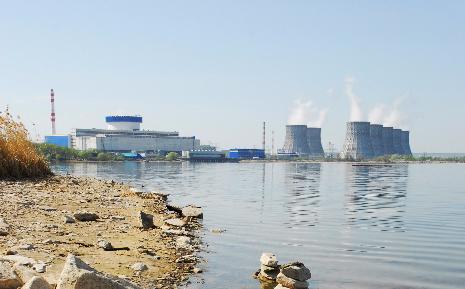22.11.2017
THE DEPARTMENT OF INFORMATION AND PUBLIC RELATIONS ROSENERGOATOM CONCERN JSC

Rosenergoatom: the strategy of transition from the deferred dismantling of the shut down nuclear power units to the immediate dismantling is now defined as a priority
In 2017, the Rosenergoatom Concern determined the strategy of transition from the concept of nuclear power units’ deferred dismantling to immediate dismantling as the main priority. This means that the Concern’s priority task in the coming years will be the implementation of the concept of decommissioned power unit immediate dismantling. This was reported by the Head of the NPP Decommissioning Department of the Concern Natalia Safronova during the International Public Forum-Dialogue “AtomEco-2017”, which started in Moscow on 21 November, 2017.
It is to be recalled that at the moment Russia has 35 power units at NPPs (branches of Rosenergoatom Concern) in operation; and Rosenergoatom as their operator is responsible for the units decommissioning and radioactive waste handling.
According to N. Safronova, immediate dismantling in modern conditions is the most effective and cost-saving option in comparison with the deferred dismantling – it’s 20% cheaper. It also allows maximum use of the residual life of equipment and structures of the shutdown units, to reduce the operating costs for the maintenance of the units shutdown for decommissioning due to the duration of the decommissioning, allows use of the capabilities of the existing radioactive waste management facilities, decontamination facilities, and use of the qualification of the personnel having been operated the stopped unit.
The decommissioning by the immediate dismantling provides for a period roughly 4 times shorter (about 15 years) than delayed dismantling decommissioning, which is 60-70 years. Thus, the implementation of the concept allows not only to reduce the unit’s decommissioning costs, but also to avoid shifting the spending on decommissioning to future generations.
Today, Novovoronezh nuclear power plant is a unique platform where the entire lifecycle of the nuclear power plant is presented – from the construction of new power units to its decommissioning. In this regard it has a leading position in the nuclear power industry around the world. In 2013, on the basis of power units No 1 and No 2 of Novovoronezh NPP, Rosenergoatom Concern established a branch, named Experimental Engineering Center (EEC).
Today, the EEC’s tasks include the removal of spent power units from operation and bringing their industrial sites to the state of a ‘brown lawn’. The Center operates a plasma furnace for processing the solid radioactive waste and two decontamination facilities for metals. It is expected that key work on decommissioning will be carried out using inner resources. Thus, separate specialized workshops are created within the structure of the EEC – a workshop for dismantling and decontamination, a shop for radioactive waste management, etc.
In the near future, the EEC will create a single training center for decommissioning. The center will solve two main tasks: re-qualification of operational personnel into personnel for decommissioning and training of specialists in decommissioning for other nuclear power plants, including the foreign ones. Here in the center there will be training simulators for mastering the practical skills, which are now used in the Novovoronezh branch of the EEC.
By the end of December 2017, the Concern will prepare a feasibility study for the transition to the immediate dismantling for the units No 1 and No 2 of Novovoronezh NPP. It is to be recalled that during the years until 2020 it is planned to shut down the power unit No 1 of Leningrad NPP and No 1 of Bilibino NPP.
Rosenergoatom Concern JSC is the leading enterprise of the Electric Energy Division of Rosatom State Corporation, the leader in electric energy generation both in Russia and abroad. It is the largest generating company in Russia and the 2nd largest in the world in terms of the volume of nuclear generating capacity. The Concern includes all 10 Russian nuclear power plants, which grant the status of branches, as well as enterprises that support the activities of the generating company. In total, 35 power units with a total installed capacity of 27.9 GW are operated at 10 Russian nuclear power plants. At present, the nuclear power plants of Russia produce about 18.3% of the total electric energy in the country.

 career
career Innovations
Innovations Projects
Projects INTERNATIONAL BUSINESS
INTERNATIONAL BUSINESS